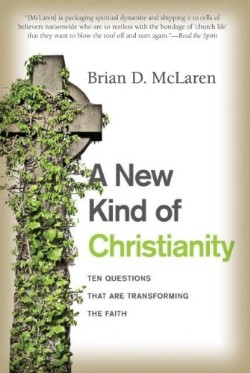Kierkegaards Fear And Trembling
$15.00
The SCM Briefly series is made up of short, accessible volumes which summarize books by philosophers and theologians, that are commonly used on theology and philosophy A level (school leaving) and Level One undergraduate courses.
Each Briefly includes line by line analysis and short quotes to give students a feel for the original text. In addition each book begins with a contextualizing introduction about the writer and his writings, and a glossary of terms follows the summary to help students with definitions of philosophical terms.
Kierkegaard’s Fear and Trembling is one of Kierkegaard’s earliest works, which he wrote under the pseudonym Johannes de Silentio. Kierkegaard had been a student of theology in Copenhagen, and had come to hate the Danish Church. He produced hundreds of leaflets against the Church during his lifetime. However his writing was largely ignored, and he was not a popular or well-regarded thinker in his own time. Hegel’s writing largely dominated philosophical thought throughout Kierkegaard’s life. Hegel believed that the highest goal for a person should be to loose oneself in the Universal. One should put aside his personal goals and ambitions and be motivated exclusively by the general interests of all. Kierkegaard regarded the individual above all else and so was repelled by Hegel’s communitarian ethic. His Fear and Trembling is a sustained response to Hegel’s ideas. It uses the story of Genesis 22, 1-18, where Abraham was willing to sacrifice Isaac without question, and only faith, to put across his own ideas and philosophy. Fear and Trembling is a required text on the UK A level syllabus.
in stock within 3-5 days of online purchase
SKU (ISBN): 9780334041306
ISBN10: 0334041309
David Daniels
Binding: Trade Paper
Published: April 2007
SCM Briefly
Publisher: SCM Press
Print On Demand Product
Related products
-
Devil At My Heels
$14.99Athletically gifted, Louis Zamperini propelled himself from the tough streets of Southern California to the 1936 Berlin Olympics, and to an NCAA mile record at USC that stood for 20 years. When war came he left the track for a B-24-a move that would have heartbreaking consequences. On a routine mission his plane crashed into the shark-infested Pacific and he would drift 2,000 miles for 47 days before being found by the Japanese. As a prisoner of war, Zamperini endured two years of horrible torture and humiliation at the hands of a psychopathic guard nicknamed “The Bird.” Yet Zamperini endured and returned home a hero.
Unfortunately, the terrible memory of his experiences haunted him. Zamperini turned to alcohol and spiraled into the depths of despair until a young preacher named Billy Graham helped him rediscover the faith that would eventually lead him to return to Japan and personally forgive all his now-imprisoned captors. Moving and unforgettable, terrifying and inspirational, Devil At My Heels is not to be missed.
Add to cart1 in stock
-
Screwtape Letters
$17.99Wormwood, a demon apprentice, must secure the damnation of a young man who’s just become a Christian. He seeks the advice of an experienced devil, his uncle Screwtape. Their correspondence offers invaluable—and often humorous—insights on temptation, pride, and the ultimate victory of faith over evil forces. Paperback with French flaps and deckled page edges.
Add to cart2 in stock (additional units can be purchased)
-
New Kind Of Christianity
$16.99After the hailstorm of controversy stirred up by the hardcover, we hope the paperback release keeps the debate going. One of the most innovative Christian voices today and author of the controversial A New Kind of Christian faces head-on the questions that will determine the shape of the faith for the next 500 years.
Add to cart1 in stock (additional units can be purchased)






Reviews
There are no reviews yet.